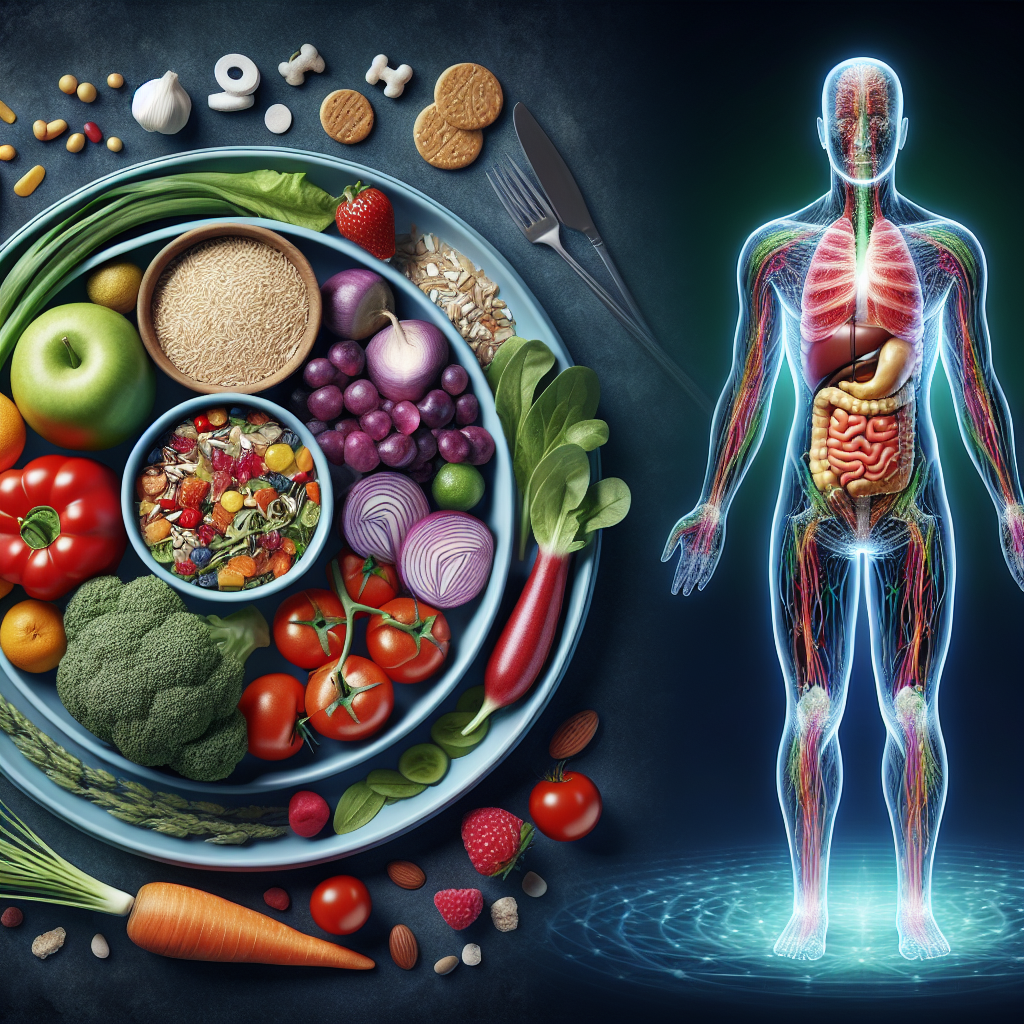-
Table of Contents

“Fueling Recovery: Nourish Your Way to a Healthier, Addiction-Free Life”
Introduction
“Nutrition and Addiction Recovery: Healing the Body from the Inside Out” explores the critical role that proper nutrition plays in the journey of overcoming addiction. This comprehensive guide delves into how a balanced diet can aid in repairing the physical and mental damage caused by substance abuse, supporting overall health and well-being. By focusing on nutrient-dense foods, hydration, and the elimination of harmful substances, individuals in recovery can enhance their body’s natural healing processes, stabilize mood, and reduce cravings. The book emphasizes the importance of personalized nutrition plans and offers practical advice on meal planning, supplementation, and lifestyle changes to foster long-term recovery and resilience.
The Role of Balanced Nutrition in Supporting Addiction Recovery
Nutrition plays a pivotal role in the journey of addiction recovery, serving as a cornerstone for healing the body from the inside out. When individuals embark on the path to recovery, they often face a myriad of physical and emotional challenges. Substance abuse can wreak havoc on the body, depleting essential nutrients and impairing various bodily functions. Therefore, adopting a balanced and nutritious diet becomes an essential component of the recovery process, aiding in the restoration of health and well-being.
To begin with, it is important to understand that addiction often leads to poor dietary habits. Many individuals struggling with addiction may neglect their nutritional needs, opting for quick, unhealthy food choices or skipping meals altogether. This neglect can result in deficiencies in vital nutrients such as vitamins, minerals, and amino acids, which are crucial for maintaining physical and mental health. Consequently, a balanced diet rich in these nutrients can help repair the damage caused by substance abuse and support the body’s natural healing processes.
Moreover, balanced nutrition can significantly impact mood and mental health, which are critical factors in addiction recovery. Certain nutrients, such as omega-3 fatty acids, B vitamins, and antioxidants, play a key role in brain function and emotional regulation. For instance, omega-3 fatty acids, found in foods like fish, flaxseeds, and walnuts, have been shown to reduce symptoms of depression and anxiety, which are common during the recovery process. Similarly, B vitamins, present in whole grains, leafy greens, and legumes, are essential for energy production and cognitive function. By incorporating these nutrients into their diet, individuals in recovery can experience improved mood stability and mental clarity, making it easier to cope with the challenges of sobriety.
In addition to supporting mental health, balanced nutrition also aids in physical recovery. Proteins, carbohydrates, and healthy fats are the building blocks of a nutritious diet, providing the energy and nutrients needed for the body to repair and regenerate. Proteins, in particular, are essential for tissue repair and the production of neurotransmitters, which are chemicals that transmit signals in the brain. Lean sources of protein, such as chicken, fish, beans, and tofu, can help rebuild muscle mass and support overall physical health. Carbohydrates, found in fruits, vegetables, and whole grains, provide a steady source of energy, while healthy fats, such as those in avocados, nuts, and olive oil, support brain health and reduce inflammation.
Furthermore, hydration is a critical aspect of balanced nutrition that should not be overlooked. Dehydration can exacerbate withdrawal symptoms and hinder the body’s ability to detoxify. Drinking adequate amounts of water and consuming hydrating foods like fruits and vegetables can help flush out toxins and support overall bodily functions. Herbal teas and electrolyte-rich beverages can also be beneficial in maintaining proper hydration levels.
In conclusion, the role of balanced nutrition in supporting addiction recovery cannot be overstated. By nourishing the body with essential nutrients, individuals can enhance their physical and mental health, making the recovery journey more manageable and sustainable. It is important to approach nutrition as a holistic aspect of recovery, recognizing that healing the body from the inside out is a vital step towards achieving long-term sobriety and well-being. With the right dietary choices, individuals can empower themselves to overcome addiction and embrace a healthier, more fulfilling life.
Superfoods and Supplements: Boosting Recovery Through Diet
In the journey of addiction recovery, the focus often lies on mental and emotional healing. However, the role of nutrition in this process is equally crucial, as it can significantly impact the body’s ability to heal and regain strength. Superfoods and supplements, in particular, offer a powerful means to boost recovery through diet, providing essential nutrients that support overall well-being and resilience.
Superfoods, known for their high nutrient density, can be a game-changer in addiction recovery. These foods are packed with vitamins, minerals, antioxidants, and other beneficial compounds that help repair the damage caused by substance abuse. For instance, leafy greens like spinach and kale are rich in folate, which is essential for brain health and can help alleviate symptoms of depression and anxiety often experienced during recovery. Similarly, berries such as blueberries and strawberries are loaded with antioxidants that combat oxidative stress and inflammation, promoting cellular repair and overall vitality.
Transitioning to a diet rich in superfoods can also help stabilize blood sugar levels, which is particularly important for individuals recovering from alcohol or drug addiction. Fluctuating blood sugar levels can lead to mood swings, irritability, and cravings, making it harder to stay on the path to recovery. Incorporating complex carbohydrates like quinoa, sweet potatoes, and whole grains can provide a steady source of energy and help maintain balanced blood sugar levels, reducing the risk of relapse.
In addition to superfoods, certain supplements can play a pivotal role in supporting addiction recovery. Omega-3 fatty acids, found in fish oil supplements, are known for their anti-inflammatory properties and their ability to support brain health. These fatty acids can help improve mood, cognitive function, and overall mental clarity, which are often compromised during addiction. Probiotics, another valuable supplement, can restore gut health, which is frequently disrupted by substance abuse. A healthy gut microbiome is essential for nutrient absorption, immune function, and even mental health, as the gut-brain connection is increasingly recognized as a critical factor in emotional well-being.
Moreover, amino acid supplements can be particularly beneficial for individuals in recovery. Amino acids are the building blocks of proteins and play a crucial role in neurotransmitter production. Substance abuse can deplete the body’s amino acid stores, leading to imbalances in neurotransmitters like serotonin and dopamine, which regulate mood and motivation. Supplementing with amino acids such as L-glutamine, L-tyrosine, and 5-HTP can help restore these levels, supporting emotional stability and reducing cravings.
While superfoods and supplements offer significant benefits, it is essential to approach them as part of a holistic recovery plan. Combining a nutrient-dense diet with regular physical activity, adequate sleep, and mental health support creates a comprehensive approach to healing. Consulting with healthcare professionals, such as nutritionists and addiction specialists, can provide personalized guidance and ensure that dietary changes and supplements are safe and effective.
In conclusion, nutrition plays a vital role in addiction recovery, offering a pathway to healing the body from the inside out. By incorporating superfoods and supplements into their diet, individuals can boost their recovery, enhance their physical and mental well-being, and build a strong foundation for a healthier, substance-free life. The journey may be challenging, but with the right nutritional support, it is possible to emerge stronger and more resilient than ever before.
Q&A
1. **Question:** How does proper nutrition aid in addiction recovery?
**Answer:** Proper nutrition aids in addiction recovery by replenishing essential nutrients, stabilizing mood, improving energy levels, and supporting overall physical and mental health, which are often compromised during substance abuse.
2. **Question:** What specific nutrients are important for individuals in addiction recovery?
**Answer:** Important nutrients for individuals in addiction recovery include proteins, omega-3 fatty acids, vitamins B and C, magnesium, and zinc, as these help repair the body, support brain function, and reduce withdrawal symptoms.
Conclusion
In conclusion, nutrition plays a critical role in addiction recovery by providing the essential nutrients needed to repair and heal the body from the damage caused by substance abuse. A balanced diet rich in vitamins, minerals, and other nutrients can help restore physical health, improve mental well-being, and support the overall recovery process. By focusing on proper nutrition, individuals in recovery can enhance their energy levels, stabilize their mood, and reduce cravings, ultimately promoting a more successful and sustainable recovery journey.



